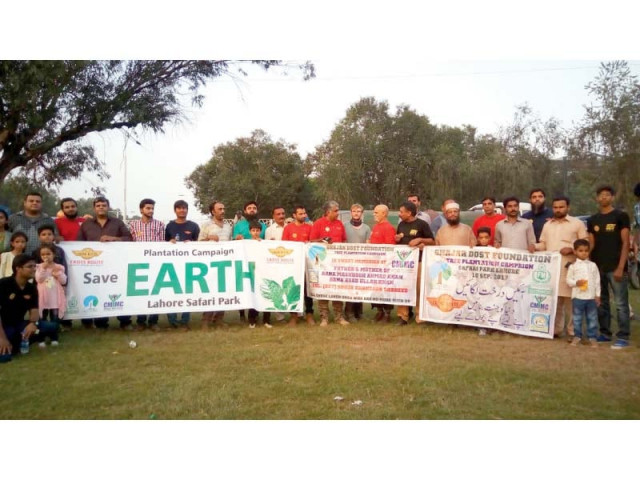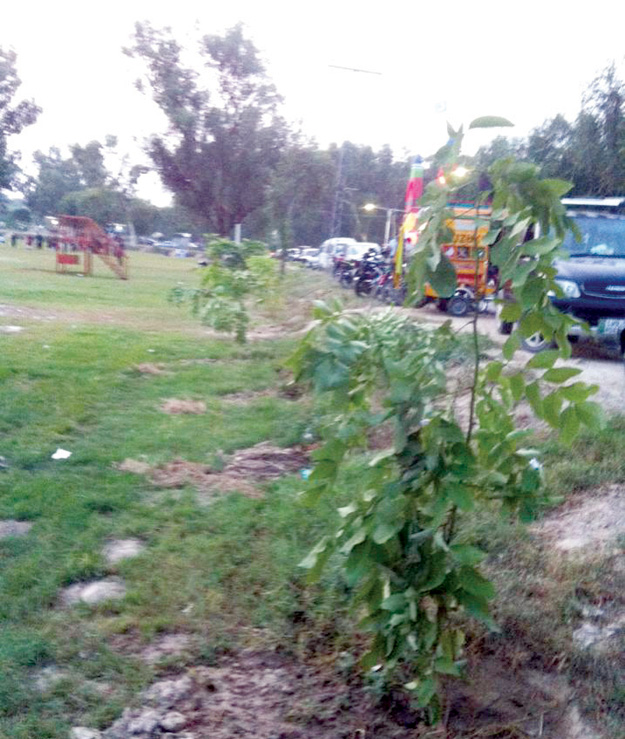Safari Zoo Park gets 100 new plants
Experts say increasing gap between demand and supply of wood is one of the reasons for deforestation

PHOTOS: EXPRESS
The event was organised by the Chief Minister’s Youth Mobilisation Committee, Shajar Dost Foundation (SDF) and Cross Route CRC Motorcycle Travellers Club of Pakistan. Save Earth Tree Plantation Campaign was dedicated to the memory of loved ones no longer with the participants.
Lahore Zoo Safari — A drive through the wild
Environment and Chief Minister Tourism Youth Mobilisation Committee Chief Coordinator (CMYMC) Malik Asim Awan said SDF was working for the promotion of tree plantation and to create awareness among the public about their importance.
“Our slogan is ‘Forget Deforestation, Start Reforestation’. We have planted thousands of trees over the last 10 years,” he said. “We planted the first-ever planned forest at Karol Forest on two acres and also planted trees at Musyari near Jheka Gali in Murree where the forest department has allocated 300 acres of land.”
Awan said that SDF arranges six to eight tree plantation campaigns each year and has established its own nurseries where free plants are available.
According to the United Nations Food and Agricultural Organisation (FAO) reports, the forest cover in Pakistan is lower than 2.2% of the total land. It is estimated that the country loses 42,000 hectares or 2.1% of its forests every year, the highest deforestation rate of any country in the region.

The reasons cited for the deforestation rate include an increasing gap between demand and supply of wood, dependence of local populations on forests for their livelihood, no mechanism to give incentives or compensations to forest protectors and climate change factors including drought, floods and fires.
Wildlife and parks dept to run free shuttle service
According to experts, a country must have a forest cover of at least 25% of their total land while cities must maintain a forest cover of 10% for sustainable growth.
Wildlife and Parks Director General Khalid Ayaz Khan said that the department was ready to support all activities that could create awareness among people on afforestation and bring a positive change in the social sector.
Wildlife and Parks Deputy Director Shafqat Ali stressed the need to promote indigenous tree plantation drives across the province.
According to a research paper on ‘History of Decline and Present Status of Natural Tropical Thorn Forest’ in Punjab by Professor Aminul Haque Khan from Government College University Lahore, natural tropical thorn forests once formed one of the most remarkable landscapes on the plains. Before land reclamation following canal irrigation, these forests were the main source of firewood supplies for urban and rural populations.
Published in The Express Tribune, September 12th, 2017.



















COMMENTS
Comments are moderated and generally will be posted if they are on-topic and not abusive.
For more information, please see our Comments FAQ